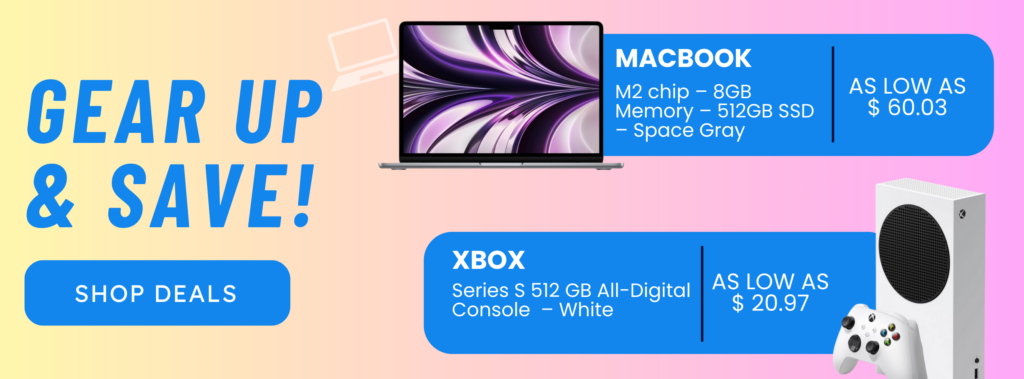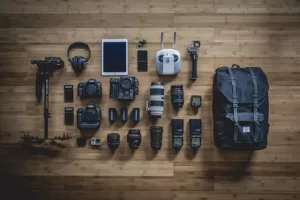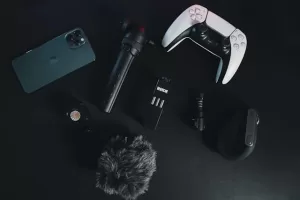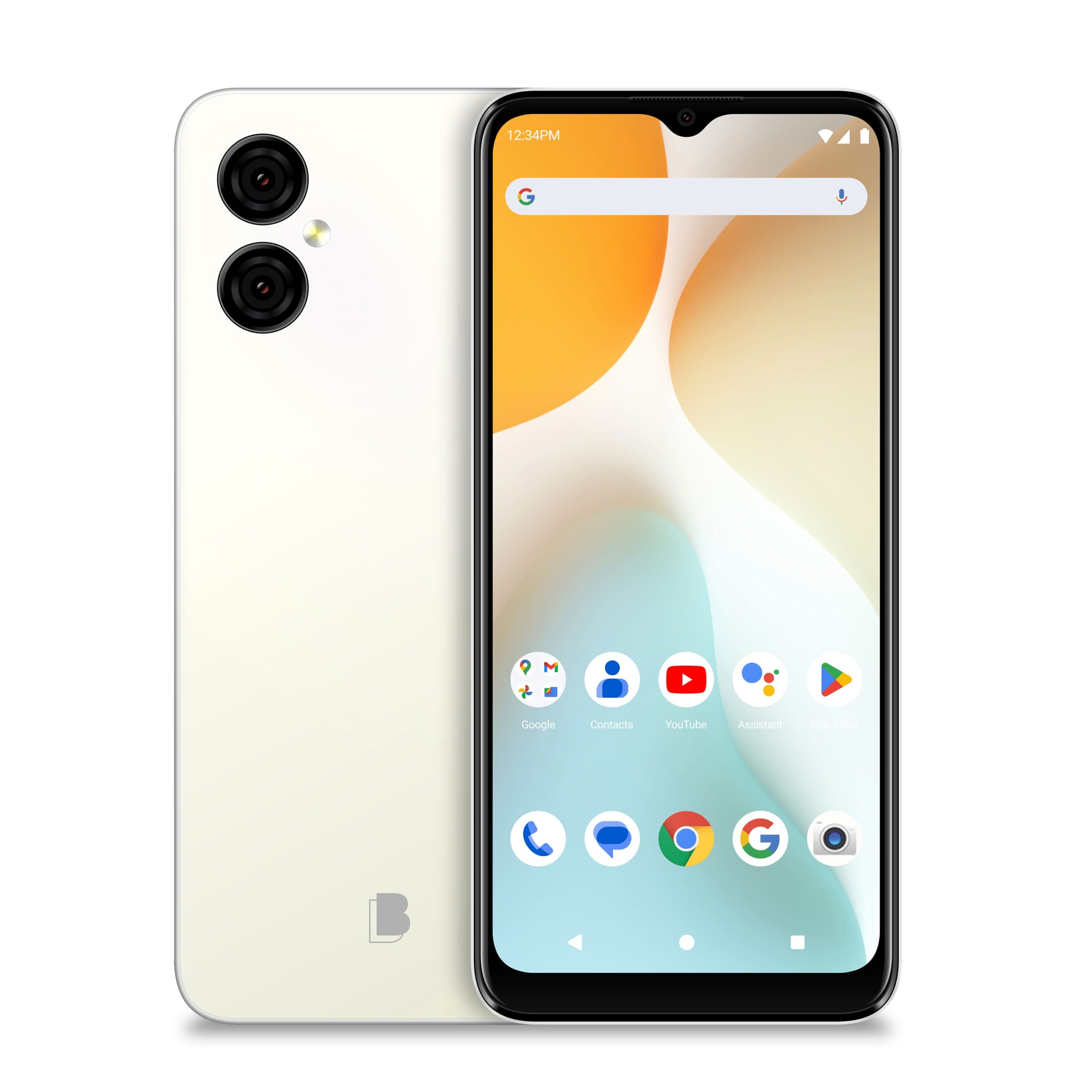Looking to boost your fitness game? Fitness trackers are the way to go. These handy gadgets have become essential for anyone serious about health and well-being. They track everything from steps and heart rate to sleep patterns, offering valuable insights to enhance your fitness journey. With so many options available, choosing the right one can be confusing. This blog is your guide to finding the perfect fitness companion, whether you’re new to trackers or looking to upgrade.
How Fitness Trackers Work
Fitness trackers utilize sensors, such as accelerometers, gyroscopes, altimeters etc to collect data on your movements and physiological indicators. This data is then processed to provide insights into your activity levels, exercise intensity, sleep quality, and more.
Benefits of Using a Fitness Tracker
Using a fitness tracker is like having a personal coach on your wrist, constantly nudging you towards better health and fitness. These devices track heart rate, steps, calories, and sleep patterns, giving real-time insights into your body’s performance throughout the day. This data not only helps you optimize your workouts but also encourages consistent activity levels to meet your daily fitness goals.
They are also essential for setting and tracking personalized fitness goals, monitoring metrics like heart rate, steps, and calories. With features such as GPS for accurate tracking and water resistance, they integrate seamlessly into your routine, offering long battery life and easy smartphone connectivity.
Types of Fitness Trackers
Fitness trackers have evolved significantly, catering to diverse preferences and functionalities. They generally fall into two main categories: traditional fitness bands and smartwatches with integrated fitness features.
Traditional Fitness Bands:
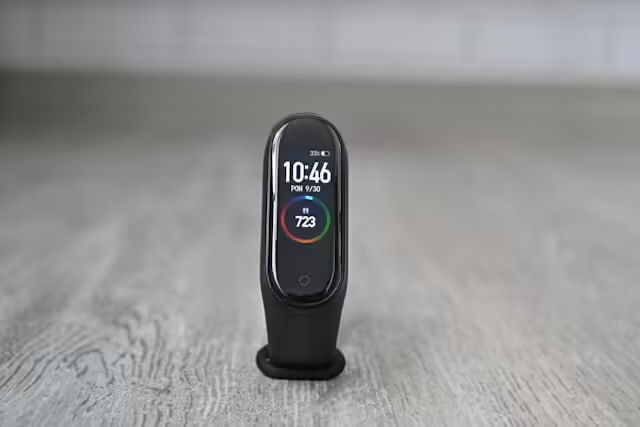
Traditional fitness bands typically sport a minimalist design, resembling a wristband with a small display screen. These bands focus on core fitness tracking functions like step counting, distance traveled, calorie estimation, basic heart rate monitoring etc. Known for their lightweight and discreet nature, they’re perfect for all-day wear and ideal if you value simplicity and functionality.
Smartwatches with Fitness Features:
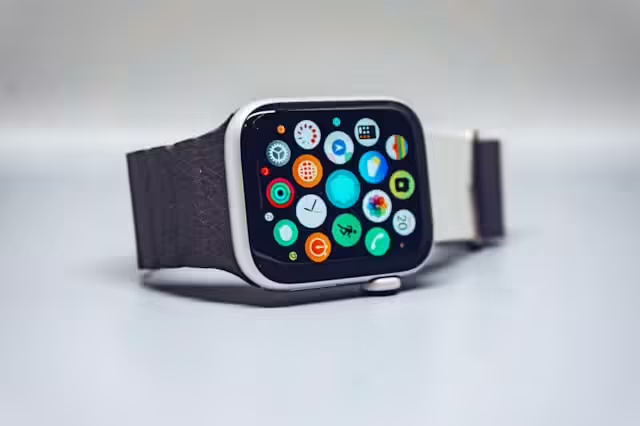
On the other hand, smartwatches with fitness features blend the functionality of traditional watches with advanced fitness tracking capabilities. Featuring larger, interactive touchscreens, they can display a wide array of information beyond fitness metrics—think smartphone notifications, weather updates, and even music controls. This versatility appeals to users seeking comprehensive smart features alongside robust fitness tracking.
Each type of fitness tracker offers unique benefits, catering to different user needs ranging from basic activity monitoring to advanced smartwatch functionalities. The choice ultimately depends on individual preferences regarding design, functionality, and the level of integration with other devices like smartphones.
Features to Consider When Choosing a Fitness Tracker
When selecting a fitness tracker, consider these essential features:
- Heart Rate Monitoring: This nifty feature keeps tabs on your heart rate throughout the day and during workouts. It’s like having a personal coach cheering you on, making sure you’re hitting those sweet spots for effective exercise.
- Activity Tracking: Think of it as your daily activity buddy. It counts your steps, tracks how far you’ve gone, and estimates those calories burned. It’s a great motivator to keep moving and achieve your daily fitness goals.
- Sleep Tracking: Ever wondered how well you sleep? A fitness tracker can give you insights into your sleep patterns, helping you understand your nighttime habits and make adjustments for better rest.
- GPS: Perfect for adventurers and outdoor enthusiasts, GPS-enabled trackers accurately map your routes and distances during runs, hikes, or bike rides. It not only tracks your progress but also ensures you can explore confidently knowing where you’ve been.
- Water Resistance: Love swimming or getting caught in the rain? A water-resistant tracker is your go-to. It’s designed to handle splashes and dives, allowing you to track your swims and stay active in any weather.
- Battery Life: Imagine a tracker that keeps going as long as you do. Long battery life means less time charging and more time tracking your activities and health metrics throughout the day.
- Compatibility: Make sure your tracker syncs smoothly with your smartphone, giving you easy access to detailed stats, setting goals, and even receiving notifications without missing a beat.
- Design and Comfort: Look for a tracker with a design that feels good on your wrist all day long. Adjustable straps and lightweight materials ensure it’s comfortable enough to wear during workouts, workdays, and everything in between.
Top Recommendations
Here are some top recommendations based on different needs:
- Best Overall: Apple Watch Series 8: Known for its sleek design, robust fitness tracking features, and seamless integration with Apple’s ecosystem, offering a comprehensive smartwatch experience.
- Best for Runners: Garmin Forerunner 965: Offers GPS, heart rate monitoring, and performance metrics, making it ideal for tracking and analyzing running workouts.
- Best Budget Option: Xiaomi Mi Smart Band 7: Provides impressive fitness tracking functionalities at an affordable price point.
- Best for tracking workouts: Garmin Fenix 7: Built for outdoor enthusiasts with rugged durability, GPS navigation, extensive sports tracking modes, and excellent battery life, perfect for monitoring various workout activities.
- Best for sleep tracking: Fitbit Charge 5: Features advanced sleep monitoring tools, sensors, and insights into sleep patterns, helping users improve overall sleep quality.
How to Finance Your Fitness Tracker
To make acquiring a fitness tracker more accessible, consider leasing or financing options available through electronics financing companies. This approach allows you to spread the cost over manageable installments rather than paying upfront. Benefits include flexibility and the ability to upgrade to newer models as technology advances.
Conclusion
Choosing the best fitness tracker involves evaluating your personal fitness goals, lifestyle, and preferred features. Whether you’re aiming to boost overall health, improve athletic performance, or simply stay active, there’s a tracker that suits your needs.
Visit our website to explore leasing and financing options for top-rated fitness trackers. We’ve partnered with Acima and Klarna to offer easy and flexible financing and leasing options, ensuring you can get the fitness tracker you need without stressing about costs.
FAQs
What are the benefits of using a fitness tracker?
Fitness trackers act as personal coaches, monitoring metrics like heart rate, steps, and calories burned. They provide real-time insights to optimize workouts and encourage consistent activity throughout the day.
Can fitness trackers sync with smartphones?
Yes, most fitness trackers sync seamlessly with smartphones, allowing you to access detailed statistics, set goals, and receive notifications directly on your device.


